Iraqi army and Peshmerga survey disputed territories ahead of joint operations
Relations between Baghdad and Erbil broke down in 2017 over the Kurdistan independence vote
The Kurdistan Regional Government’s Peshmerga Ministry and the Iraqi Army have begun surveying areas of Iraq’s disputed territories in preparation for joint military operations more than a year after relations broke down between the two sides.
“Starting this week, the committees began their operations in the Kurdish regions outside KRG administration [conflicted areas],” a Thursday, February 21 Peshmerga Ministry statement on the surveys read.
The surveys will determine where Peshmerga and Iraqi Security Forces forces should be deployed in the territories in order to close gaps in their lines, which are being exploited by Islamic State, according to previous statements by Peshmerga officials.
“The joint committees plan to conduct a field study and mapping of those regions, and consequently to create what is to become the front-line of Peshmerga Forces and Iraqi Army,” Peshmerga Ministry Secretary General Lieutenant General Jabar Yawar said in the statement.
“Those committees are still performing their tasks in Kifri and Khurmatu regions” in disputed territory in eastern Iraq, he added.
The ministry sought to dispel rumors last week that its forces had already deployed to the Khurmatu area after Colonel Jamal Warani said they “have tightened their positions” near the towns of Quri Chai, Jabara, and Qara Tabah as part of the renewed cooperation.
“A joint committee of the ministries of the [Iraqi] Federal [government] and Peshmerga today oversaw the determination of military points in those areas, according to a previous agreement between the two sides,” Warani was quoted as saying on February 11.
Warani’s statement came one day after Peshmerga Ministry deputy chief of staff Major General Qamaran Kamal said the joint committees were scheduled to visit the disputed territories to recommend locations for future deployment.
“We plan to redistribute the military forces, be it Iraqi or Peshmerga forces. We will relocate concentrations from regions that are stable and move them to those regions in which ISIS threat still exists,” Yawar said on Thursday.
Thursday’s statement is the ministry’s first official acknowledgement that Peshmerga forces have visited the disputed territories since they withdrew in October 2017 following an outbreak of hostilities over the Kurdistan independence referendum.
The locations mentioned by Yawar and Warani lie around the Kifri-Tuz highway, which links Kirkuk to the Iran border.
“People tend to put quite a lot of effort into securing that route,” said Michael Knights, senior fellow at the Washington Institute for Near East Policy.
The area contains a surviving ISIS pocket and is also a known hub for trafficking oil to Iran, which the KRG formally banned last week.
“The PUK have historically been quite good at working with the federal government and the Shi’a militias,” Knights told The Defense Post. “Everyone’s kind of working together to move that oil around and control their local areas.”
The Patriotic Union of Kurdistan, or PUK, is the rival party to the Kurdistan Democratic Party and largely administers areas east of Kirkuk.
The Iraqi Defense Ministry did not respond to multiple requests for comment.

Cooperation with the Kurdistan Region
The surveys are the latest step in restoring military cooperation between the federal government in Baghdad and the KRG.
Iraq’s new Prime Minister Adel Abdul-Mahdi ordered the defense ministry on December 20 to re-activate the joint coordination committee after the two sides reached a “mutual understanding” during a number of informal meetings, Yawar told Iraq Oil Report in an interview earlier this month.
The committee tasked five joint subcommittees with surveying the security situations in Kirkuk, Saladin, Makhmour and Diyala, and east and west of Mosul.
“The directive aims at establishing coordination between the Peshmerga and the Iraqi forces to conduct joint operations in these areas,” Yawar said.
The Peshmerga Ministry last week denied reports that a joint operations center had already been established in Kirkuk.
The main coordination committee formally met in Erbil on February 4 for the first time since relations broke down to discuss Iraq’s security situation and “restoring relations between the Ministry of Peshmerga and the Iraqi Defense Ministry,” a Peshmerga statement read.
The committee includes Lieutenant General Abdul-Amir Yarallah, deputy commander of Iraq’s Joint Operations command, Peshmerga Ministry Chief of Staff Lieutenant General Jamal Mohammed, and Yawar.
Previous cooperation via the joint security mechanism ended after Iraqi Army forces and Hashd al-Shaabi militias advanced into disputed territories held by the Peshmerga in October 2017 in response to the Kurdistan independence referendum the previous month.
Baghdad saw the referendum as attempt to annex territories which the Peshmerga captured from Islamic State after the group routed the Iraqi Army in 2014.
The Peshmerga withdrew from Kirkuk as a result of the operation, leaving forces supported by the federal government to take control of the city, its nearby K-1 airbase and lucrative oilfields, once a primary source of revenue for the KRG.
Federal forces also pushed Peshmerga out of the Sinjar and the Nineveh plains, as well as Diyala governorate and the Khurmatu area.
The conflict ended the two sides’ coordination and left gaps in their areas of operation, which ISIS has exploited to organize attacks, according to a number of reports.
CJTF-OIR reported “slight increases” in terror attacks in Kirkuk, Diyala, and Saladin provinces throughout 2018.
Additionally, Iraqi federal forces and the Hashd al-Shaabi militias (also called the Popular Mobilization Units) are inexperienced at dealing with the multi-ethnic and sectarian populations of the disputed territories, leading to frictions which extremist groups seek to exploit.

ISIS activity continues in the mountains of Hamrin, Makhoul and in and around the Qara Chokh mountain range between Nineveh and Erbil.
Abdul-Mahdi earlier this month called the current level of engagement between the Iraqi Army and Peshmerga “unprecedented.”
“We will together work, God willing, with our brothers in the Ministry of Peshmerga. Peshmerga is part of the Iraqi National Defense Apparatus,” Brigadier General Yahya Rasoul, spokesperson for Iraq’s Joint Operations Command media center, told Rudaw earlier in February.
“We have to work together to confront the terrorist enemy, Daesh terrorist gangs and its remnants,” Rasoul said.
Experts say there is significant work ahead.
“I think we’re still at a reasonably early stage with the joint security mechanism,” said Knights, who recently met with officials from both sides in Iraq.
Prior to the 2017 crisis, Peshmerga and Iraqi Army shared areas of operation along the border border between KRG and federally-controlled Iraqi territory, allowing for greater coordination.
“Today there’s a hard dividing line between the two, and we don’t have a lot of overlap,” Knights said. “There’s no ability to get them to move through each other’s lines” during operations.
“The goal is to try and ensure these two forces – that there’s no daylight between them, no crack where the Islamic State can operate freely,” he explained.
“We can talk about adjusting the Kurdistan patrol line,” Knights said, adding, “that’s what the joint coordination committee’s field visits will be looking to do.”
‘All kinds of cooperation’
Peshmerga and ISF have de-conflicted and exchanged situational awareness during close-proximity operations over the last year, CJTF-OIR reported in December, but have not conducted any joint operations since 2017.
The Coalition has encouraged the two sides to restore cooperation to crack down on ISIS activities.
CJTF-OIR reported in December that it was working to establish “joint security centers manned by both ISF and Peshmerga personnel to help close the gaps between the two forces, build confidence, enable operations closer to the disputed areas, and avoid escalation of misunderstandings.”
“Right now, there is no CJTF involvement needed,” CJTF-OIR spokesperson Colonel Sean Ryan told The Defense Post when asked about the Coalition’s role in the renewed joint cooperation.
“CJTF-OIR personnel worked to establish the Joint Security Center located in Erbil, however, both the Peshmerga and ISF have taken prominent roles and are now running the respective program,” Ryan said via email.
The U.S.-led Coalition has sought to avoid the spotlight, Knights said. Its role has come under scrutiny after some Iraqi lawmakers called for American troops to leave the country following comments by President Donald Trump that U.S. forces were there in part to “watch over Iran.”

Renewed Peshmerga-ISF cooperation serves interests on three sides. A return of the Peshmerga to the disputed territories would hand the KRG a political win, while alleviating security demands on the central government.
That, in turn, may reduce Baghdad’s reliance on the PMUs, an ostensible goal of the Trump administration.
“Peshmerga forces are now ready for all kinds of cooperation with Iraq’s security forces and the international coalition to permanently eliminate the threat of terrorists in Iraq,” KRG Prime Minister Nechirvan Barzani said earlier in February during a memorial service for the 2004 terror attack in Erbil.
“There is a positive and good atmosphere between the KRG and the Iraqi federal government; fortunately there is a good understanding with Prime Minister Adel Abdul-Mahdi that would help solve all problems between Erbil and Baghdad,” Barzani said, according to Xinhua news agency.
“Terror groups like Daesh are exploiting the obstacles and problems between Baghdad and Erbil, thus it is important to strengthen joint cooperation between the two sides and solving the problems is seen by the regional government as a crucial issue,” he added.
Earlier this month, Iraq’s President Barham Salih signed his government’s 2019 budget bill into law, which obliges Baghdad to pay the salaries of the Peshmerga for the first time.
The U.S. currently funds Peshmerga brigades under the KRG.
The law also restores Baghdad’s funding of KRG employees’ salaries, which was suspended in 2014 due to a budget crisis and dispute with the regional government over external oil sales.
The law further enjoins the KRG to provide Baghdad with 250,000 barrels per day.
“The new cooperation must be kept distant from political intervention to counter all security threats,” retired Iraqi Army Brigadier General Ismael Alsodani, Baghdad’s former defense attaché to the U.S., told The Defense Post.
Article 140 of Iraq’s 2005 constitution required the federal government to resolve the status of the disputed territories by popular referendum no later than the end of 2007, but it was never implemented.
Kirkuk, in particular, is one area in which both sides can find opportunities for progress on joint security in the future, Knights said.
Kurdish Peshmerga Maj. Gen. Said Hazhar Zarvani and Col. Mahmoud Khalil Yousef, commanders assigned to Shabak Battalion, met with @USMC Maj. Matthew Berthinet and Master Sgt. Gary King, with the forward civil-military operations office, #CJTFOIR, near Kabarli, Iraq. pic.twitter.com/CJN2frzAnd
— Inherent Resolve (@CJTFOIR) February 17, 2019
Abdul-Mahdi ordered the Second Counterterrorism Service Brigade, the primary security force in Kirkuk, to be replaced in late January.
The decision was made at the recommendation of the unit’s commanders, according to Alsodani.
The CTS units are highly specialized in anti-ISIS raids, and “aren’t designed to hold ground for a long time,” Alsodani said, adding, “They need to pull back and rest, reorganize, and retrain them.”
Units from the 61st Brigade of the Iraqi Army, which guarded Baghdad’s relatively secure Green Zone for years, have moved in to replace them.
“They’re much more suitable for the role, but of course they don’t know Kirkuk,” Knights said. “They’re hassling everyone. There’s this period of friction right now where the new unit is annoying people.”
“[It’s] just because they’re new. Eventually they’ll settle down” when they realize “these Kirkukis are not so bad,” he said. “They’ve only known Baghdad for years.”
“Since Kirkuk is a delicate place, it requires a highly disciplined and well-trained unit to replace the [CT] forces,” Alsodani said.
Iraqi Federal Police in Kirkuk’s rural areas are also being replaced with the 14th Iraqi Army Division from the Fallujah area.
Moving the Federal Police to cities while deploying the Iraqi Army to Kirkuk’s volatile countryside “looks like transitioning to a longer-term security model in Iraq in which the Interior Ministry is responsible for security in the urban areas,” Knights said.
Baghdad has been working to reconstruct its military forces and capabilities since the devastating war against ISIS.
The Peshmerga operate outside of Baghdad’s command structure, though they are formally recognized as a legitimate Iraqi force under the country’s constitution.
“From a political and security point of view, I see military cooperation would serve [both] Iraq’s and Kurdistan’s stability and the inhabitants of all disputed areas,” Alsodani said.
Iraq will pay Popular Mobilization militias the same as their army counterparts


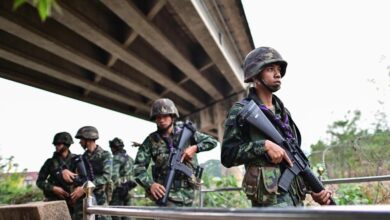
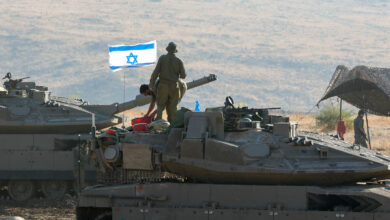
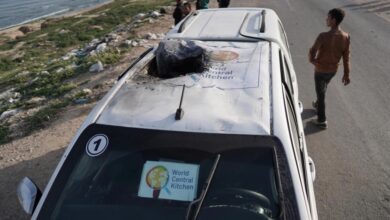
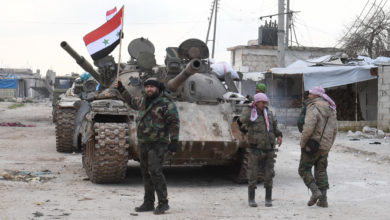

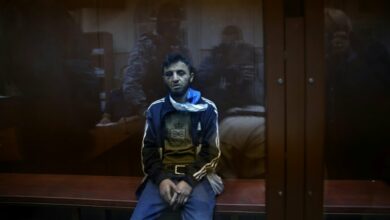
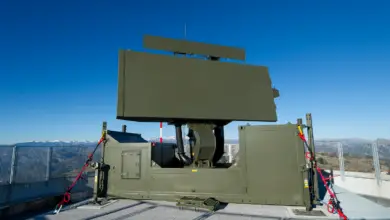
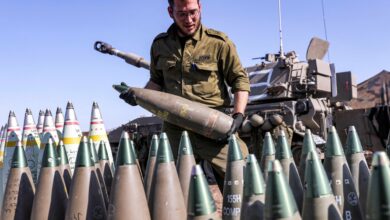
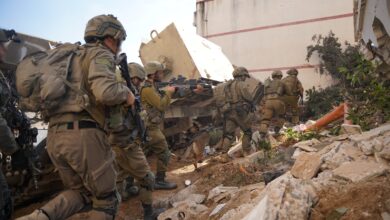

3 Comments